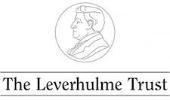 |
Newcastle University Newcastle upon Tyne NE1 7RU United Kingdom. |
 |
What do you think discussing books with others [in your book group] adds to your own experience of reading?
We often sometimes split up into 2 or 3 groups when we are discussing something. It’s sometimes either love or loathe, and whenever each of us puts our point of view forward you can see the other person’s point of view, because they’ll say, well you know, no I didn’t get that out of it. I looked at it this way, and you know. And you think, well, no I hadn’t really thought of looking at it that way, but I can see where you are coming from. I mean sometimes it’s a total difference of opinion. That you say, well I would like that and you loathed it or vice versa, and that’s different people, different tastes. But we’ll often sort of – we have some very good people in our group, and they say well I think you know the way that the author wrote that really brought out something important that they had to say about that person, and it might be something that you’d missed, or you agree or disagree with, so discussions can be very lively. They make you think, you feel part of something, and you come way and you’ve thought, well I read that book but it’s given me so much more because we’ve looked at it in depth, and we’ve had a really, really good chat about that. It makes you use your brain instead of going [clicking off noise and laugh]
So it enables you to kind of think about it in more depth in more detail?
Well you have to, because we write a review, and you give it so many marks out of ten. So you know, sometimes you think, oh dear! But you’ve really got to think about that book, because sometimes you’ve got to write, say, a paragraph, sometimes a bit more, sometime a bit less, and then say well, how many do I think it’s worth and sign your name to that. So yeah, it makes you think.